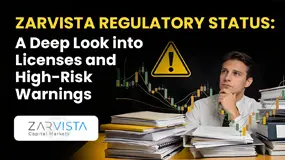Abstract:Economists and traders use GDP to ascertain the health and growth potential of any economy.

Every Monday through Friday, thousands of traders from every corner of the world trade forex, producing a daily trade volume exceeding $6 trillion and the worlds largest financial market. Compared to other financial markets, the forex market possesses the most depth and has experienced the most significant market growth, adding over 40% to its daily trading volume over the past decade.
The foreign exchange market‘s substantial growth reveals that macroeconomic indicators and events play a more influential role than in the past. To better understand the foreign exchange markets’ core driving forces, and how traders use that information in forex trading, keep reading.
Unemployment Rates
The percentage of jobless people in a country‘s working class is the unemployment rate. Countries calculate unemployment rates by measuring the volume of people who are willing and seeking work against those active in the nation’s workforce. Important exceptions to this category include those who are disabled, retired or in school.
Market volatility can stem from unemployment rates as it is a lagging indicator and reflects changes that have already taken place in a country‘s economic state. The importance of unemployment rates in forex trading cannot be stressed enough, as unemployment rates reveal significant indicators of a country’s economic condition.
Here are three ways a forex trader may invest in unemployment rates:
Lower Than Predicted – When a nation‘s unemployment rate is lower than predicted, it is characterized by an increase in workers that generate income and consumption expenditure. Sometimes this prosperity is met with inflation, which then influences an increase in interest rates. Decreases in a nation’s unemployment rate are a positive force and indicate that the nations economy is strengthening, which creates a buying opportunity.
Higher Than Predicted – When a nations unemployment rate is higher than predicted, it is met with decreased consumption, lower incomes and a dip in economic activity. As a result, the government may stimulate the economy by employing fiscal policies, creating demand within unemployment benefits, and hiring individuals for public work projects. When a nation faces rising unemployment rates, forex traders tend to look for selling opportunities.
Lower Than Natural Rate of Employment – According to the Natural Rate of Unemployment, unemployment is not sustainable for long as it results in rising inflation. Should the United States unemployment rate fall beneath 5.5%, the Federal Reserve may raise federal fund rates to align economic growth.
When using unemployment rates to trade forex, it is most effective when compared on a year-to-year basis as less frequent comparisons may not accurately represent the actual unemployment trend.
Economic Growth and Output
The Gross Domestic Product (GDP), measurable on a monthly, quarterly or annual basis, measures the output and production of produced goods concerning a nation‘s economy. In short, it relays to economists and traders the overall health and growth potential of a country’s economy. In the United States, the GDP mostly concerns consumption, net exports, government spending and investment.
Consumption includes costs like fuel, food, rent and personal spending. Net exports are calculated by subtracting total imports from final exports, with a more productive economy reflecting a higher export value. Government spending includes government investments, governmental employee salaries along with social and defense program benefits. Lastly, investments concern actual business expenditures, including acquiring new equipment, manufacturing centers or household investment in property.
Here are three practical responses an FX trader may react to GDP readings:
A selloff of a domestic currency versus other currencies is likely to occur if the GDP is lower than anticipated.
An appreciation and buy opportunity of the domestic currency versus other currencies is likely to occur if the GDP is higher than anticipated.
Should the Gross Domestic Product of a nation reside within its projection, traders may need to compare the previous quarters and year to understand an underlying currencys economic health better.
Interest Rates
Interest rates are the single most significant factor influencing the forex market, and they are managed by any of the eight global central banks. The eight major central banks include:
US Federal Reserve Bank (US)
European Central Bank (EUR)
Reserve Bank of Australia (AUD)
Reserve Bank of New Zealand (NZD)
Swiss National Bank (CHF)
Bank of Canada (CAD)
Bank of England (GBP)
Bank of Japan (JPY)
To fight off inflation, the central banks will raise rates. On the other hand, when a central bank decreases rates, they encourage lending and flood money into the economy. Traders who understand economic indicators such as the Consumer Price Index (CPI), Employment levels, Housing market, Subprime market and Consumer spending tend to better approximate how central banks will react.
More often than not, forex traders structure trading approaches when central banks make significant announcements regarding changes to monetary policy (monitor with an economic calendar) or by analyzing currency forecasts.
Not all interest rate changes are set in stone; sometimes, there are surprise changes to interest rates. When surprise interest rate changes occur, forex traders must be fast-acting to take advantage of market sentiment before the trend continuation resumes. Should a central bank hike up interest rates, it creates a buying opportunity and an appreciation in that nations currency. Should the central bank cut rates, traders tend to sell and buy currencies with higher interest rates.
Global Affairs
Political Impacts
A nation‘s political election presents isolated cases where political uncertainty causes increased volatility to its currency and is primarily concerned with political changes about monetary or fiscal policy. To expand upon this, political parties or nominees who are identified as financially successful or appear to be more committed to driving economic growth tend to impact that nation’s currency more significantly in a positive manner. Other instances of this are when political affairs affect the forex markets which include corruption scandals and non-confidence votes.
Environmental Impacts
Natural disasters, including tornadoes, hurricanes, tsunamis, wildfires, earthquakes and flooding, are detrimental to a nation‘s currency, infrastructure and morale. Destruction to infrastructure (a nation’s economic backbone ) from natural disasters severely debilitates economic output, consumer confidence and spending, and almost always negatively impacts that nations currency.
Impacts of Warfare
Warfare between nations can significantly impact associated countries currency and infrastructure while stifling economic conditions for years. Similar to natural disasters, there is a great deal of uncertainty surrounding future economic conditions and the health of nations involved in warfare.
For instance, the short-term economic availability of involved warring countries is greatly diminished, while post-war reparations stir as much uncertainty as war itself. Countries rebuilding from war are required to finance capital with lower interest rates, which, in turn, depreciates that nations currency value. Given the uncertainty surrounding warfare, nations involved in war tend to have more volatile currency movements than non-participating countries.
Balance of Trade
The balance of trade between nations can appreciate or depreciate its currency. For example, countries that possess a higher export demand experience an appreciation in their currency. Countries that rely more upon importing than exporting accrue trade deficits that drive down demand for the domestic currency (as they exchange their currency for other nations currency for foreign goods), therefore also depreciating.
Inflation Rates
Fluctuations to market inflation cause currency exchange rate changes. Countries with higher inflation experience currency depreciation, which is addressed shortly by the central banks raising interest rates to stimulate economic growth. When countries have a lower inflation rate, that nations currency tends to appreciate, creating a potential buy trade opportunity.
FX Influencers by Period
The economic strength and outlook of countries fuel the forex markets. To deepen the scope of your understanding of factors that influence the forex markets, here is a time frame reference:
Short-Term Determinants
Volatility
Interest Rates
Commodity Prices
Consumer Confidence
Medium-Term Determinants
Bond Yield
Economic Growth
Political Outlook
Trade Deficits
Unemployment Rates
Fiscal & Monetary Policy
Long-Term Determinants
Purchasing Power
Balance of Trade
Gross Domestic Product
Warfare and environmental disasters have long-term effects that immediately influence the involved nations currency, injecting increased volatility and uncertainty into its market.
Closing Thoughts
Global economic factors are the driving force behind the foreign exchange market. Traders that understand the above influential factors and how they relate to the forex market with time are in the best position to maximize fluctuations in currency trading. Compared to other financial markets, the foreign exchange market is the fastest-growing, most liquidated and possesses a daily trade volume that is more than 25 times greater than all the worlds stock markets combined.










